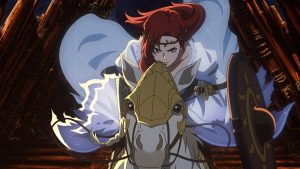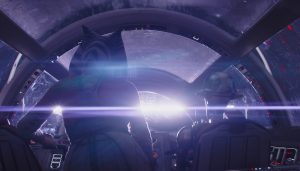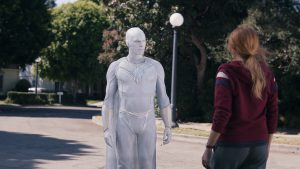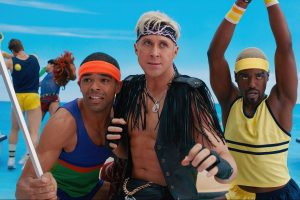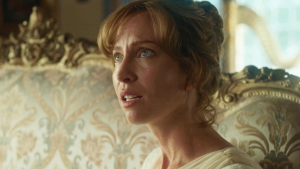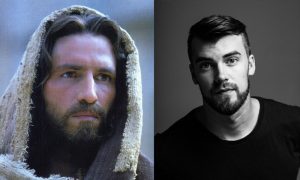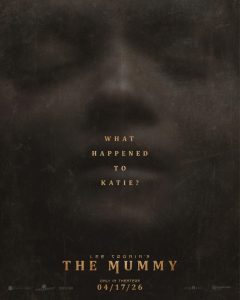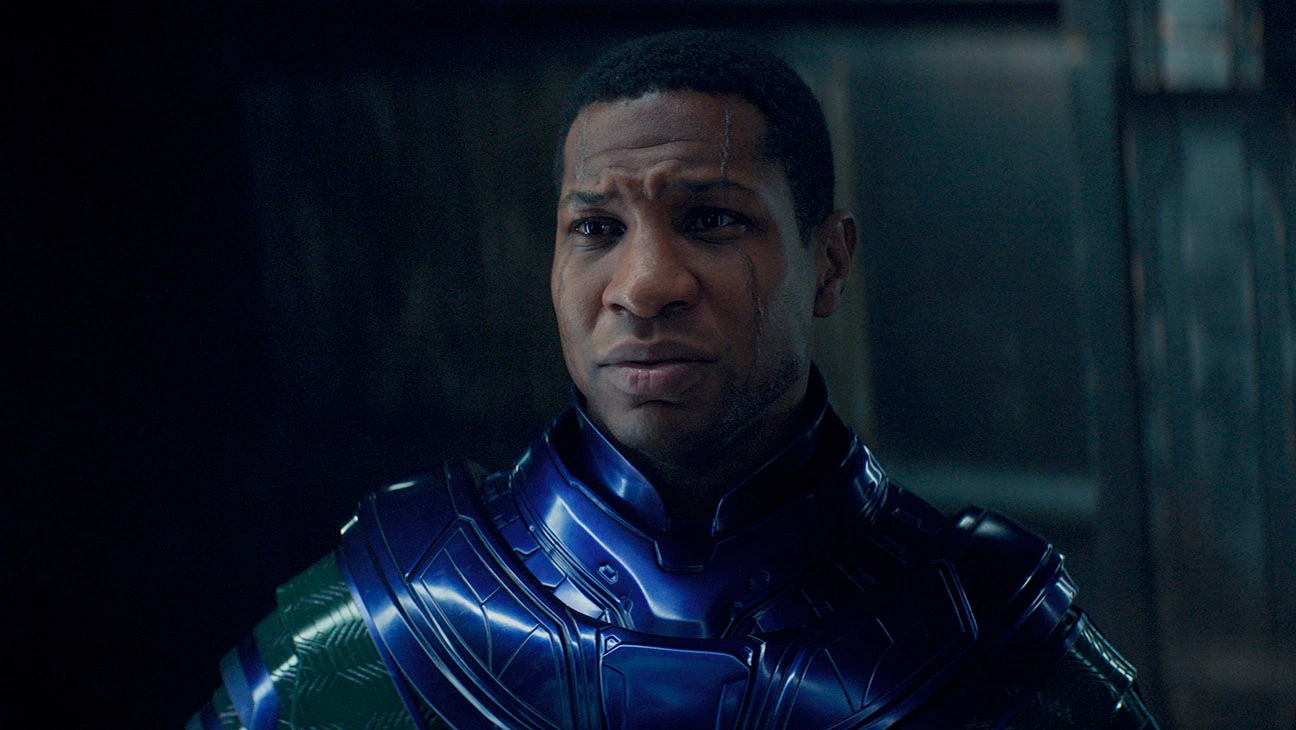
While the Kang Dynasty has not fallen, we dare say that its glory days are behind it (and when those days include getting whooped by a solo Ant-Man, it’s fair to wonder if they were ever so glorious…). Because as of Wednesday afternoon, the film titled Avengers: The Kang Dynasty just lost its director.
As per Deadline, which broke the news, Destin Daniel Cretton has moved off directing what is supposed to be the first Avengers film since 2019’s gargantuan Avengers: Endgame. Considering Cretton previously directed the well-received Shang-Chi and the Legend of the Ten Rings, this would be a surprise… except that according to the digital trade, Cretton is still onboard to possibly direct other Marvel Studios projects in the future. In other words, this appears to be less about Cretton stepping away from Kang Dynasty than Marvel possibly (and probably) stepping away from Kang.
The character, who is admittedly played with verve and presence by Jonathan Majors, has in fact been the center of plenty of internal handwringing at the studio due to the serious allegations and legal troubles Majors faces. With Majors’ trial in regards to alleged abuse scheduled to begin at the end of the month, Marvel has been conspicuously quiet about the actor’s future with the studio. Meanwhile various publications, including most vividly at Variety, have reported anonymous accounts about internal crisis meetings among Marvel’s braintrust over what to do with Kang and Majors. And all that was before The Marvels spectacularly misfired and flamed out.
But Marvel has plenty of other reasons to reassess its current course and how the next four years of Marvel movies seem to be designed around Kang the Conqueror, a supervillain multiplied to infinity as he and his endless variants seem intent on attacking the multiverse. That is clearly intended to be the centerpiece of both Avengers: The Kang Dynasty, due out in 2026, and Avengers: Secret Wars, which is scheduled for 2027. So if the plan is really to pivot away from Kang, all we can say is that this is a good thing.
To look only narratively, and commercially, at the current trajectory of the MCU—and to put Majors’ own legal predicament to the side—betting almost an entire decade’s worth of Marvel films on the multiverse has appeared creaky for a while now. Marvel obviously scored a tremendous success when they used the concept of parallel universes to make perhaps the ultimate fan service film in Spider-Man: No Way Home. That is also in no way a disparagement of the movie; the amount of sheer joy audiences felt as they cheered Tobey Maguire’s return to the red and blue tights was deafening. Consequently, Marvel and Disney executives likely thought they found a new storytelling apparatus to continue pleasing fans.
But while it was novel to use an in-universe narrative plot device to get Maguire to interact with Tom Holland and Andrew Garfield, not to mention Willem Dafoe and Alfred Molina, the same trick started to quickly turn stale when Patrick Stewart was asked to reprise Charles Xavier in Doctor Strange in the Multiverse of Madness after putting the character to bed so poignantly in Logan. Meanwhile Warner Bros./DC’s attempt to imitate No Way Home by bringing Michael Keaton back as Batman, and a visibly bored Michael Shannon as General Zod, in The Flash appeared faintly desperate.
Conversely, as this was going on, the filmmaking team of the Daniels produced the truly innovative and mind-bending Everything Everywhere All at Once. It low-key stole the superhero franchise’s thunder. Whereas the big media companies seemed to primarily be using this storytelling device as a way to bring back beloved actors from decades ago to reprise iconic parts, the Daniels did virtually everything you might want with the concept in a film so inventive that it even wowed the Academy of Motion Picture Arts and Sciences into giving it Best Picture and Best Director. And even when limited to the superhero genre, what Spider-Man: Into the Spider-Verse and its recent sequel accomplished with multiversal storytelling was far more thrilling than anything their live-action brethren have attempted.
Honestly, by the time we reached Ant-Man and the Wasp: Quantumania, which slightly dipped its toe back into the multiverse, and especially The Flash, the same trick that seemed exhilarating in 2021 was wearing thin. So wrapping the next four years of MCU films around it is a little troubling.
Of course if you’ve seen The Marvels’ post-credits scene, you already know Marvel is pot-committed to continue down this road. But considering that own movie’s box office misfortunes, there are clearly going to be some adjustments. Our own Joe George has recommended some solid places to start.
Yet if we can allow another, it would be to not only move away from Kang, but move away from the multiverse. Obviously some element of it needs to be addressed in the future, as Marvel Studios has already threaded the X-Men films that were produced by 20th Century Fox into its future, and Deadpool 3 is just around the corner. But what about making Marvel’s own X-Men? Characters who are new and untethered to 20 years of previous continuity.
Previously, it was reported Marvel was also considering replacing Kang with the Fantastic Four’s most iconic villain, Doctor Doom, as the Avengers’ next archnemesis. To take it a step further, Marvel could consider building up Doctor Doom and his fictional homeland of Latveria as a major narrative thread that could shift the MCU in a fresh and dynamic way. Some of the most popular Marvel Studios films of the previous decade—Captain America: Civil War and Black Panther—dealt with the idea of superheroes upending the geopolitical status quo in the 21st century. So what about supervillains like Doom?
A Darth Vader-like figure crossed with Dracula could be every bit as compelling as Thanos, and certainly more so than Kang. Because unlike Kang, Doom is a threat to the lone world most of the MCU’s heroes live in. When you play with countless variants of the same character, there are no stakes, because there is no victory or defeat. There is just the next parallel world; the next Kang. A single Doom would be something else entirely.
Beyond that, if Marvel pivots back to its fictional world’s politics, it might finally be time for the company to focus on the mutant issue and develop a compelling reason for why the X-Men are a lot less loved than the Avengers.
It’s a chance to move away from what’s clearly not working and freshen the Marvel formula.
The post Marvel Studios Moving Away From The Kang Dynasty Would Be a Good Thing appeared first on Den of Geek.
